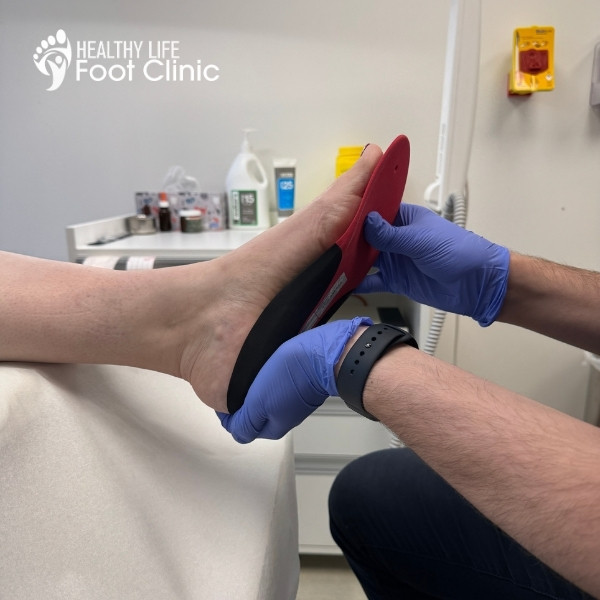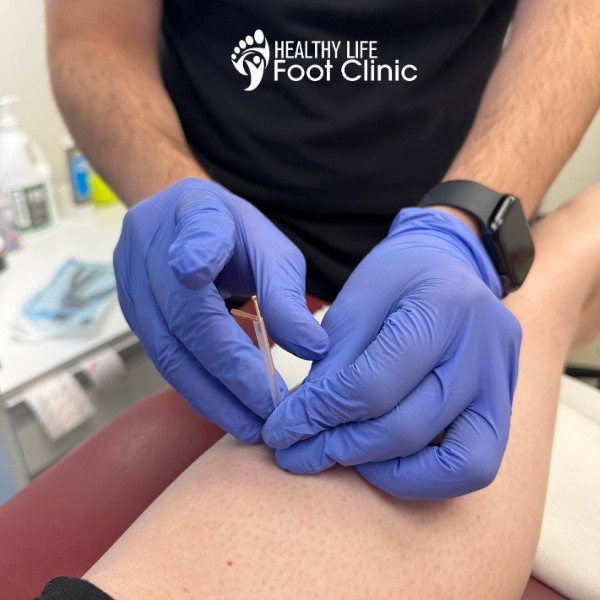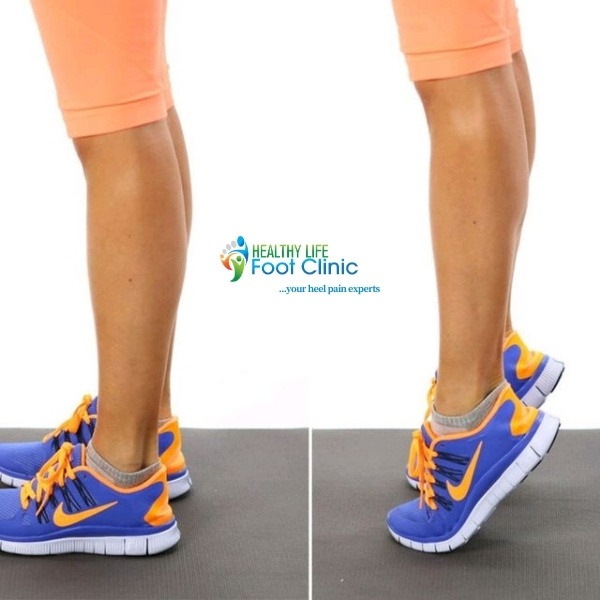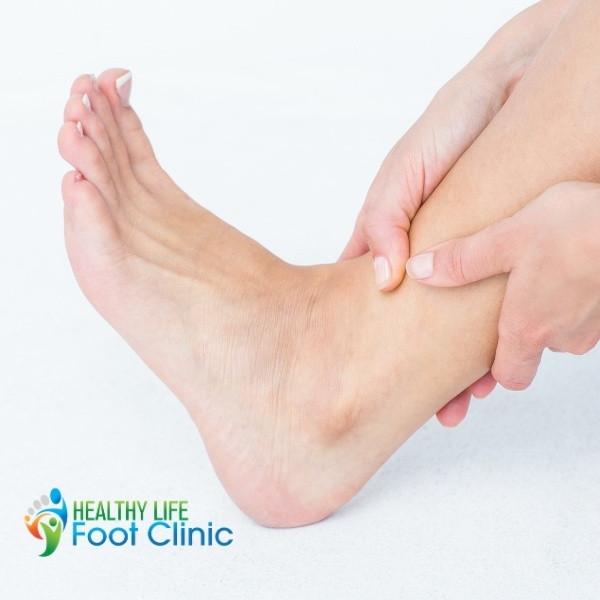Ankle pain is a common issue affecting people of all ages and from all walks of life.
Ankle pain can develop as a result of a multitude of factors such as, acute injuries like sprains or fractures, to more long term issues like overuse, arthritis and biomechanical imbalances.
Regardless of the cause, ankle pain can significantly impact daily activities and reduce overall quality of life.
Understanding Ankle Pain
Ankle pain typically manifests as discomfort, stiffness, swelling, or instability around the joint. Acute pain often results from injuries such as ligament sprains or tendon strains, while chronic pain can stem from conditions like Achilles tendinitis, plantar fasciitis, or osteoarthritis. Additionally, biomechanical issues, such as flat feet or overpronation, can lead to abnormal stress on the ankle joint, causing pain over time.
Need a Podiatrist for Ankle Pain?
Find Out More About Healthy Life Foot Clinic’s Care Guarantee
Contact Us or Book Online 24/7
Treating Ankle Pain
Effectively managing ankle pain requires a multifaceted approach. We begin with a biomechanical assessment – looking at how you walk and how your feet work – to try and determine why the pain began, and why it isn’t leaving. We then look at potentially changing how your foot works using orthotic therapy, and combining that with techniques like dry needling, joint mobilization, and stretching.

Management and Prevention of Ankle Pain
Prevention
What Are Orthotics?
Orthotics are custom-made or prefabricated shoe inserts designed to support and align the foot and ankle. Unlike generic insoles, orthotics are designed based on the individual’s foot structure and gait pattern, offering targeted support and cushioning.

How Orthotic Therapy Helps
Orthotic therapy addresses the root cause of ankle pain by correcting abnormal foot mechanics. For example, in individuals with flat feet, orthotics can provide arch support, reducing strain on the ankle ligaments and tendons. Those with high arches may benefit from cushioned orthotics that absorb shock and redistribute pressure more evenly.
Orthotics not only alleviate pain but also enhance stability, improve gait, and prevent the recurrence of injuries. They are especially beneficial for active individuals who place repetitive stress on their ankles. By promoting proper alignment and reducing abnormal motion, orthotics help maintain joint integrity and reduce inflammation – ultimately leaving you pain free!
Need a Podiatrist for Ankle Pain?
Find Out More About Healthy Life Foot Clinic’s Care Guarantee
Contact Us or Book Online 24/7
Management
Once we have addressed the cause of the issue to prevent it from happening again – we then look at potential management techniques to assist in alleviating the pain. These include dry needling, joint mobilization, strengthening and stretching.
Dry Needling
Dry needling is a technique that involves inserting fine needles into trigger points or areas of muscle tension. It helps relieve pain and improve muscle function by stimulating blood flow and releasing tight muscle fibers. In cases of ankle pain, dry needling targets muscles and tendons around the joint, such as the calf and peroneal muscles, to reduce tension and promote healing.

Joint Mobilisation
Joint mobilization is a manual therapy technique that improves ankle mobility and reduces stiffness. Performed by a trained professional, it involves gentle, controlled movements to stretch the joint capsule and surrounding ligaments. Mobilization can alleviate pain by enhancing range of motion and breaking down scar tissue from previous injuries. This technique is particularly useful when stiffness contributes to abnormal movement patterns and discomfort.
Stretching and Strengthening
Incorporating stretching into a rehabilitation routine helps maintain flexibility and prevents muscle tightness that can exacerbate ankle pain. Key stretches include calf stretches, Achilles tendon stretches, and plantar fascia stretches. Strengthening exercises, such as heel raises and resistance band exercises, build support around the joint, reducing the risk of future injuries.

Integrative Approach
Combining orthotic therapy with techniques like dry needling, joint mobilization, and targeted stretching offers a comprehensive approach to ankle pain management. While orthotics address the root cause and the biomechanical issues, dry needling relieves muscle tension, mobilization restores joint function, and stretching maintains flexibility.

